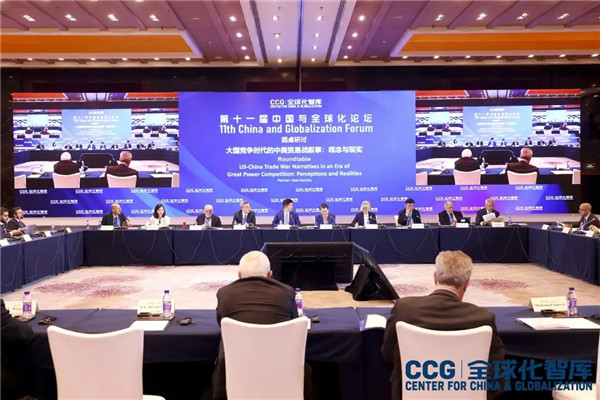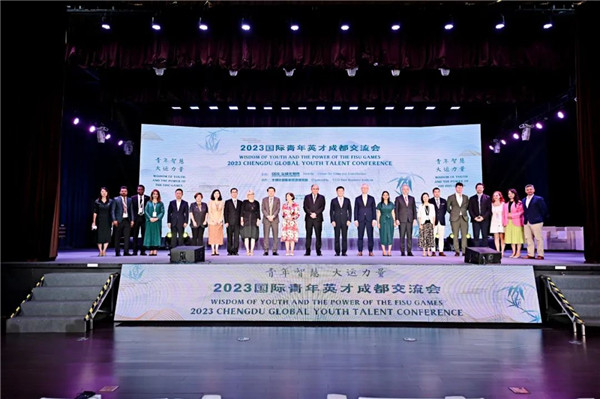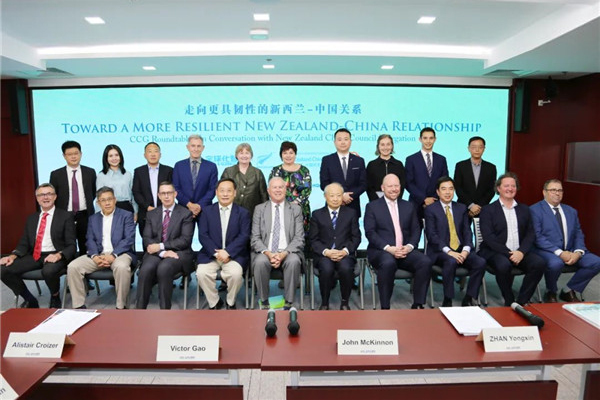Two-Way Street: 2018 Update U.S.-China Direct Investment Trends
Report Released and Roundtable with the National Council on U.S.-China Relations (NCUSCR), Rhodium Group and the Center for China and Globalization(CCG)
Amidst rising tension in the Sino-U.S. economic relationship, on April 19, the Center for China and Globalization (CCG) hosted a roundtable in Beijing, bringing together experts from China and the U.S. to discuss foreign direct investment (FDI) between the two countries. The event marked the China launch of a new report, Two-Way Street: 2018 Update on the US-China Direct Investment Trends, a research project led by the Rhodium Group and the National Committee on U.S.-China Relations (NCUSCR).
Opening remarks were given by NCUSCR President Steve A. Orlins, who has been working to strengthen Sino-U.S. ties for over 40 years. Noting a hardening of attitudes towards China in Washington, Orlins emphasized the constructive role that FDI has played in creating long-term commitment and productive business relationships. He also stressed that two-way FDI has nurtured people-to-people connections and long-lasting bridges of friendship between China and the U.S, bonds that can to help surmount current challenges in the bilateral relationship.
Following introductions by Orlins and CCG President Wang Huiyao, key findings of the Two-Way Street report were presented by its authors, Daniel Rosen, Founding Partner of the Rhodium Group, and Thilo Hanemann, Director of the Rhodium Group. The report draws on a rich data set on U.S.-China bilateral investment that is continuously updated by Rhodium and available to the public.
Hanemann noted that after a period of rapid growth to reach a record $60 billion in 2016, FDI flows between China and the U.S. fell by around a third in 2017 to $43.4 billion. This contraction, the first in a decade, is primarily attributed to a decrease in U.S.-bound Chinese investment in 2017, down to $29 billion from $46 billion in 2016. Rosen highlighted the impact of policy, rather than business factors, in explaining this decline.
The sectoral composition of Chinese FDI into the U.S. has been significantly influenced by the policies on both sides of the Pacific. In particular, the tightening of controls on outwards capital flows by Beijing hit U.S.-bound investment in entertainment, real estate, hospitality, and consumer products and services. At the same time, there has been a general shift towards high-tech sectors and infrastructure-related industries.
Chinese FDI was also impacted by more stringent scrutiny by the US government, in particular the actions by the Committee on Foreign Investment in the United States (CFIUS) regarding Chinese acquisitions of U.S. technology companies. Despite these challenges, Rosen also highlighted the positive trends for bilateral investment, such as a significant increase in the number of Americans employed by Chinese companies. Overall, the proportion of U.S. workers hired by Chinese companies is notably higher than those from other countries such as Japan.
On the investment flows from the U.S. to China, Hanemann reported that the total amount of FDI by the US companies in China remains largely flat in 2017. To date, total cumulative investment in China by U.S. companies ($256 billion) remains much higher than the total invested in the U.S. by their Chinese counterparts ($140 billion). While recognizing the progress made by China on improving market access for foreign investors in 2017, the report indicates that these changes did not have a substantial impact on FDI patterns in China.
Looking to the future, Rosen noted uncertainty and potential headwinds for bilateral investment, including rising interest rates in the US and more restrictive policies towards China. However, Rosen also remarked that further opening of the Chinese market can help to boost inbound U.S. investment and that the pressure of capital outflows from China has subsided, giving room to relax restrictions on Chinese outbound investment.
The presentation was followed by a roundtable discussion during which experts exchanged views on U.S.-China FDI trends, policy implications and the outlook for 2018. This group included He Ning, CCG Senior Fellow and former Minister for Trade and Economic Affairs at the Chinese Embassy in the U.S; Jiang Shan, CCG Senior Fellow and former Director-General of the Ministry of Commerce (MOFCOM) Department of American and Oceanian Affairs; Alistair Michie, Director of CCG’s International Advisory Council; Wang Zhi, CCG Non-Resident Senior Fellow and Professor at the Research Institute for Global Value Chains, University of International Business and Economics; and Li Weifeng, CCG Executive Secretary-General.





